Alphabet
Latest

Alphabet dropped its plan for solar-powered internet drones
Wondering what happened to Google's solar internet drone project? Unfortunately, we don't have good news. An Alphabet spokesperson has confirmed to 9to5Google that its X division quietly dropped the Titan project shortly after it folded into X in late 2015. It won't surprise you as to why: Project Loon's high-altitude balloons are a "much more promising" way of getting people online in remote locations, the company says. Staffers who were working on Titan have found their way into other "high flying" initiatives, such as Project Loon and Project Wing. You can read the full statement below.

Google may sell off its satellite imaging division
Wall Street has been pushing Google to behave more like a regular company, hacking and slashing at its longer-term projects and R&D divisions. Now, Alphabet CFO Ruth Porat has her sword pointed at the search engine's satellite imaging unit, Terra Bella. According to both the Wall Street Journal and Bloomberg, Google will sell the division to a competitor, Planet, and buy mapping data from other companies in future.
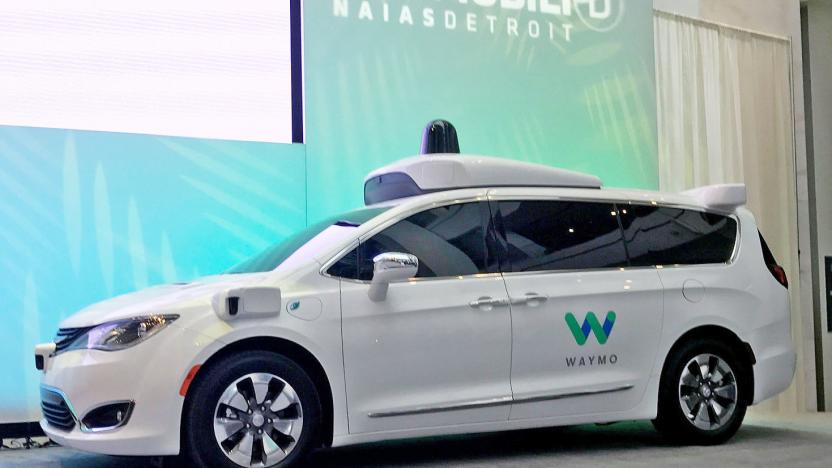
Waymo built a full sensor suite for its self-driving minivans
Last month, Google's newly-renamed self-driving division Waymo unveiled its newest test model, the Chrysler Pacifica. Today, during the North American Auto Show's Automobili-D conference, the CEO John Krafcik revealed that it built a full sensor suite expressly for its autonomous minivans. Not only did the company's extensive R&D lead them to create entirely new LiDAR sensors, but also cut down the expense of individual sensors, which will likely drive down the cost of sensor setups across the autonomous driving industry.

Google makes its essential Android modding tools easier to get
Android users have a long history of unlocking their phones, sideloading apps and installing custom OS builds -- but getting the tools to do all that has always been kind of a pain in the ass. Users who wanted to play around with their phone's backend had to download the entire Android SDK just to get access to two specific tools. Not anymore. Google has quietly released its ADB and Fastboot tools as lightweight, independent packages.
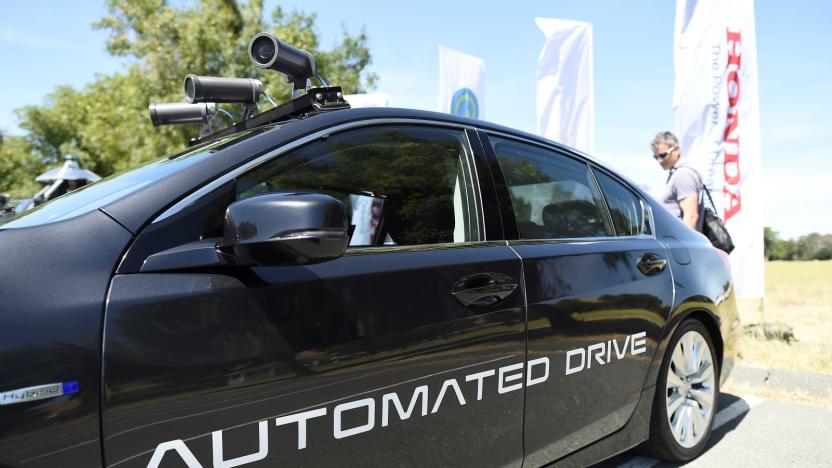
Honda is in talks to use Alphabet's self-driving car tech
Mere days after Google spun out its self-driving car division as Waymo, the newly spawned Alphabet company is already in the midst of cutting big deals. Honda has revealed that it's entering talks with Waymo on integrating autonomous hardware with its vehicles. It's still extremely early, but Honda has proposed giving Waymo modified cars to help speed things along. This wouldn't sidetrack Honda's goal of getting its self-driving tech on highways by 2020, the company makes clear -- it would just allow for a "different technological approach."

Google shows off its sleeker self-driving Chrysler minivans
Waymo, Google's new autonomous vehicle division, has finally unveiled its latest model: a heavily modified Chrysler Pacifica. The hybrid minivan, which can go 30 miles in pure electric mode, was glimpsed earlier in spy photos at a Google facility. It's now fixed up with the custom computer, sensors and telematics used on Google's Lexus SUV and other self-driving cars. Waymo didn't just bolt the tech on, though. Rather, its engineering team worked together with Fiat Chrysler (FCA) at a special facility in southeastern Michigan.
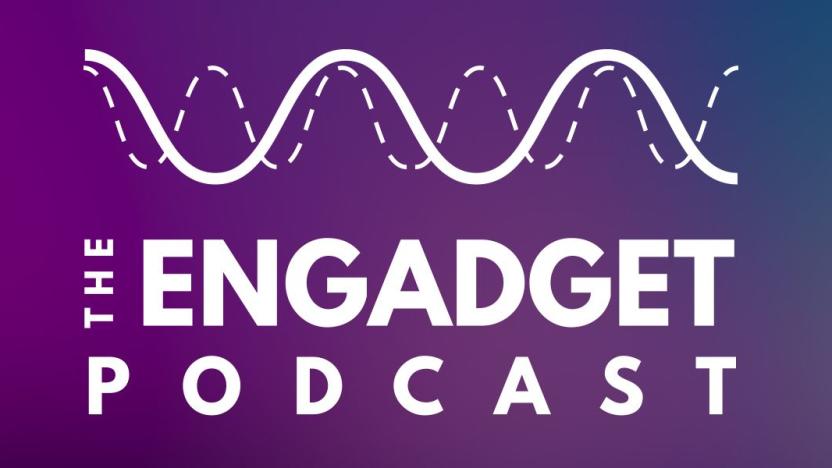
The Engadget Podcast Ep 18: We Both Go Down Together
Managing Editor Dana Wollman and Senior Editor Devindra Hardawar join host Terrence O'Brien to talk about the biggest tech stories of the week. First Dana and Devindra debate the value of Amazon's delivery drones and Google's... I mean Alphabet's new self-driving car company, Waymo. Plus they discuss the privacy freakout surrounding Evernote. Then all three will dig into the never ending security failures of Yahoo. Now that the company has admitted that over 1.5 billion user accounts were compromised -- and didn't say a word about it for over 2 years -- will Verizon still go through with its planned buy out? The panel certainly hopes not.
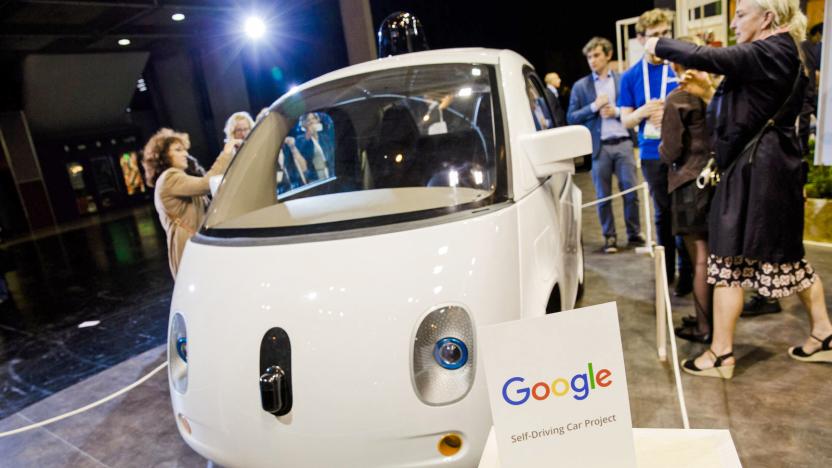
Google spins out its self-driving car division
Google isn't wasting much time validating rumors that it's shaking up its self-driving car efforts. The internet giant is spinning out its self-driving project as a new company, Waymo, with current division head (and Hyundai veteran) John Krafcik as its CEO. It'll still have access to the resources of Google's parent company Alphabet, but it'll act more as a "venture backed startup," Krafcik said in a press conference. Appropriately, there's much more talk of turning autonomous vehicle tech into a practical business.

Alphabet's autofocusing contact lens won't be tested in 2016
Bad news if you were hoping that Google's (now Alphabet's) smart contact lenses would be available relatively soon: they're running into some hurdles. Novartis, which is partnering with Alphabet's Verily Life Sciences on an autofocusing lens that addresses farsightedness, says it won't make its goal of testing the technology in 2016. It's "too early to say" when trials would start, a spokeswoman explains to Reuters. It's also uncertain when tests for the other lens, which monitors blood sugar levels, would likely begin.

Google is restricting AdSense ads on fake-news sites
Google made headlines recently about the top search result for 'final election numbers' being patently false. Now the company is going to keep fake-news sites from using its nigh-ubiquitous AdSense program according to the Wall Street Journal. In a statement, the search giant says that as part of an update to its publisher policies, that it will restrict ad serving on websites that "misrepresent, misstate or conceal information about the publisher, the publisher's content, or the primary purpose" of the site.
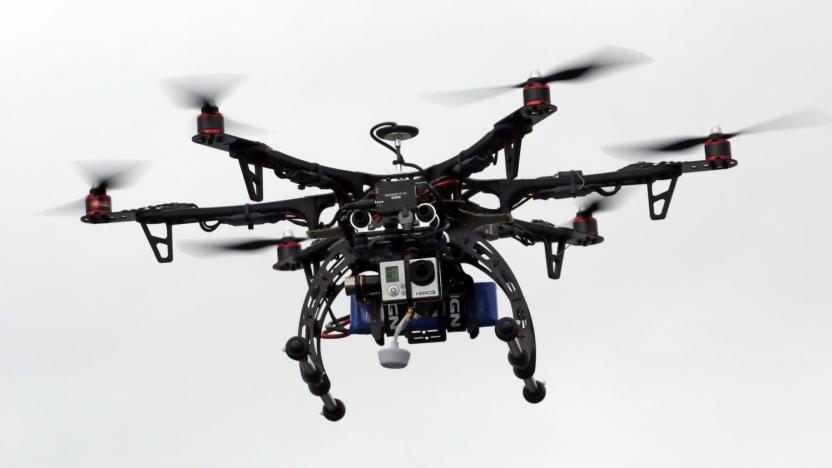
Alphabet's drone service reportedly nixes Starbucks delivery deal
It looks like Alphabet is walking back its Project Wing drone delivery initiative. Some employees are being told to seek other jobs within the company formerly known as Google, and the outfit even killed a partnership with Starbucks, according to Bloomberg. Wait, Starbucks? Apparently, there were talks of using the drones to deliver coffee, much in the way that Chipotle was going to fly burritos to Virginia Tech students. Google provides WiFi at some of the coffee chain's locations. "Those plans were nixed largely over disagreements about the access to customer data that Alphabet wanted," according to Bloomberg's sources. Sounds like classic Alphabet.

Alphabet's experiments still lose money, but it's getting better
Alphabet, semi-new parent company to the Google we all know and love/tolerate, continues to rake in money hand-over-fist. The company just released its financial statements for Q3 of 2016, and both revenue and overall profit continues to soar. All companies under the Alphabet umbrella pulled in $22.5 billion in the quarter (up 20 percent year over year), and net income rose 27 percent to $5.1 billion.
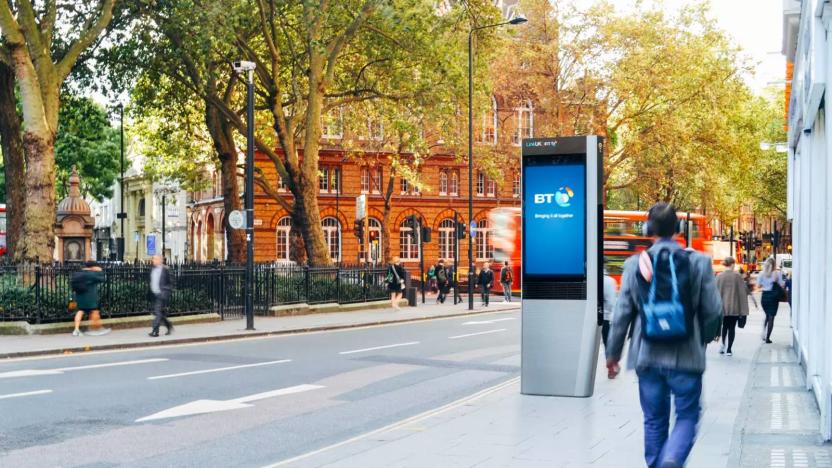
New York's free gigabit WiFi kiosks are coming to the UK
BT celebrated the 80th birthday of London's iconic red phone boxes earlier this month, and while some of these are being updated for the digital age, there are still countless antiquated payphones across the country needing a new lease of life. Today, BT has announced plans to rip out hundreds of these and replace them with next-gen kiosks that'll offer free gigabit WiFi, free UK calls, charging facilities and access to maps, directions and info on local services via an embedded Android tablet.

Google's memory-boosted AI could help you navigate the subway
Modern neural networks are good at making quick, reactive decisions and recognizing patterns, but they're not very skilled at the careful, deliberate thought that you need for complex choices. Google's DeepMind team may have licked that problem, however. Its researchers have developed a memory-boosted neural network (a "differentiable neural computer") that can create and work with sophisticated data structures. If it has a map of the London Underground, for example, it could figure out the quickest path from stop to stop or tell you where you'd end up after following a route sequence.
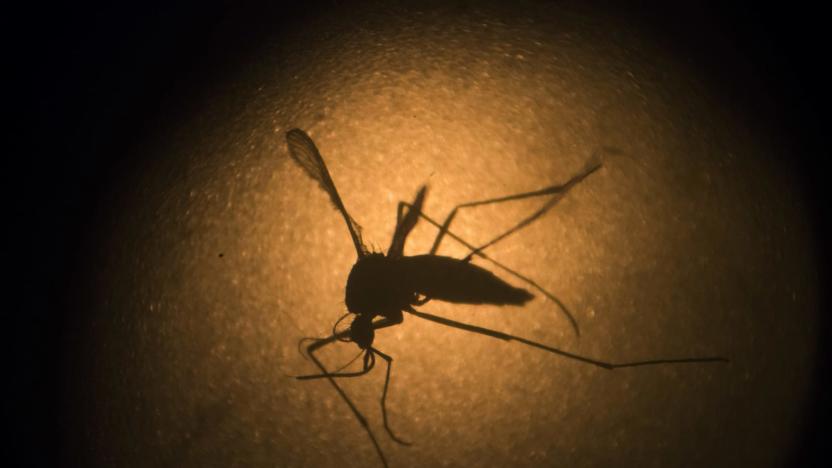
Alphabet is working to squash the Zika virus, too
There are a few ways to kill off a pest: eliminate its food supply, or, make sure it can't effectively procreate. Since the pest in question for this post is mosquitos, the former solution isn't an option. So, Verily, the life-science division of Alphabet Inc., is addressing the Zika-carrier with a spin on the latter, according to MIT Technology Review.

Google wanted to sell intelligent robot arms (but didn't)
Google (and parent company Alphabet) build a lot more hardware than fancy new smartphones and AI assistants -- it's just that a lot of it doesn't make it out of the lab. Take these advanced robotic arms, for example: Alphabet's robotics group built the arms, which were used in a research project to show how Google's software helps robots learn from each other over time. But despite their apparent usefulness, Alphabet CEO Larry Page decided to cancel plans to sell the hardware because it failed Page's "toothbrush test." As Bloomberg reports, Page only wants to ship products that could be used daily by billions of people, and these robotic arms are significantly more niche than that.

Alphabet's health watch has changed a lot since last year
You know that health-tracking watch Alphabet's X research division showed off more than a year ago, the one you're looking at above? Yeah, you'll want to forget about that design. MIT Technology Review managed to get a peek at a prototype of what should be "at least" the second generation of the now Verily-made design, and it bears precious little resemblance to the squarish block from 2015. At is heart is a familiar-sounding circular e-paper screen -- not as exciting as the OLEDs and LCDs on smartwatches, but vital for a device that you're supposed to wear as often as possible.

Security writer recovers from massive revenge cyberattack
Journalists are no stranger to making enemies bent on retaliation. However, it's becoming increasingly difficult to survive that retaliation in the internet era... just ask security writer Brian Krebs. An unknown party knocked his website offline last week with a massive distributed denial of service attack (620Gbps of non-stop data) as revenge for exposing two major cyberattack sellers who've since been arrested. He's only back online after taking advantage of Alphabet's Project Shield, which protects journalists against censorship-oriented denial of service campaigns. His previous anti-DDoS provider, Akamai, had little choice but to drop him -- the company tells the Boston Globe that a sustained attack on that level would have cost the company "millions."

Google sibling Verily to launch connected diabetes therapies
Google's parent company, Alphabet, is wasting no time helping to fund intelligent medical treatments. Just a month after it teamed up with GlaxoSmithKline (GSK) to pioneer so-called bioelectronic medicines capable of treating chronic disease, Verily Life Sciences (formerly Google Life Sciences), confirmed today that it has teamed up with French pharmaceutical company Sanofi to form a new joint venture that will help treat diabetes.
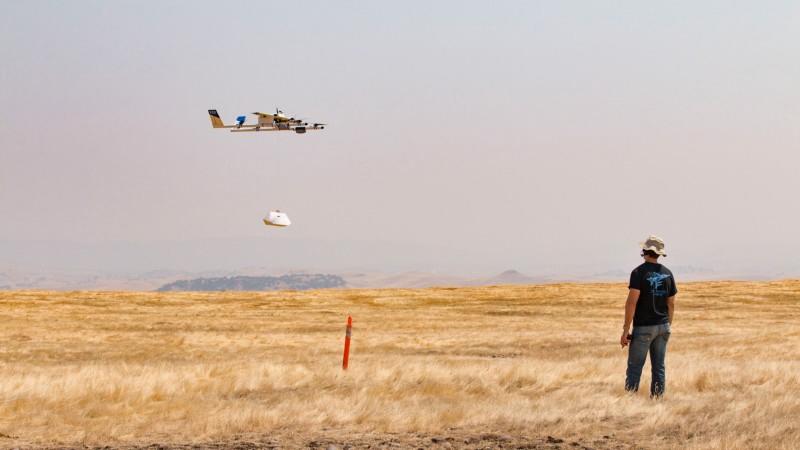
Burritos by drone will soon be a thing
In the biggest test of drone deliveries to date, Google's parent company Alphabet Inc. and Chipotle are bringing airborne burritos to the campus of Virginia Tech in Blacksburg, Virginia. According to Bloomberg, the trial runs start this month using Alphabet's experimental Project Wing drones flying out of a Chipotle food truck.









